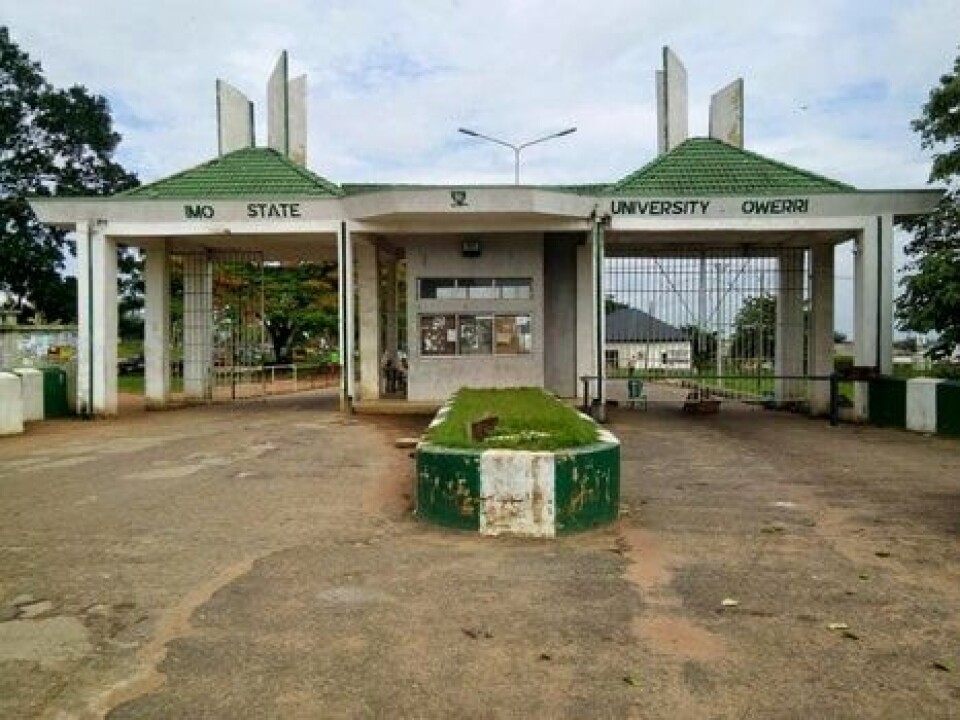Lawyers shape a nation through their involvement in shaping legislation and policy. In this Q&A, Rex Uwadoka, 21, president of the Law Students’ Society at Imo State University in Owerri in eastern Nigeria, speaks to Kingsley Ugochukwu Ani for Africa Legal about law and taking his place in Africa’s biggest economy.
What is your view on the importance of a strong judiciary in a democracy?
The judiciary is the last hope of the common man and, without a strong judiciary, democracy will crash. A strong judiciary helps with the continuous servicing of democracy. If something goes wrong, like when people fall out of line of established procedure, they turn to the judiciary for remedies and repairs.
When a judiciary is corrupt or doesn’t perform as expected, democracy won’t flourish.
What is the role of the lawyer in Nigerian society?
A lawyer’s role is to defend justice and the oppressed. The reason is simple - many lawyers find themselves in leadership positions in organizations, committees, because of their profession. Lawyers in the corporate sector play a different role. So, the office a lawyer is in, determines what one can expect from him or her.
Why did you choose to study law?
Law in Nigeria is the most versatile course anyone can study because it exposes you to opportunities. You can delve into any area you wish to pursue after that; you will not be restricted to the courtroom or litigation lawyering. Law is flexible and I am someone that loves being versatile. Having a law degree will afford me that flexibility.
When you complete your studies, what do you want to do?
I don’t want to strictu sensu become a courtroom lawyer, but I would like to become a tax professional. A career with PwC, KPMG, Deloitte or the likes would be in my sights. I like tax. Right now you see lawyers blending their law degree with certifications in other areas; becoming chartered accountants too. I like that and would like to do something similar.
Much of Nigeria’s legal system still reflects the era of colonial rule. Could you give your views on this?
It is true. Our legal system is not far from the British legal system because it started with them. The British moulded Nigeria to become what it is today, so we naturally gravitated towards their system. We followed their footsteps, and whatever they’d told us then is what we are still moving with today – look at our Common Law – something like the Sale of Goods Act. These don’t reflect our Nigerian culture or the spirit of our culture, but we’re still using them.
Do you think a pan African network of lawyers would help the growth of democracy on the continent?
Yes. Everyone is looking for a way of getting out of “Democratic Corruption” which is basically an African problem. We make laws, but Presidents and some others seem to be above them. If we all come together to consciously educate ourselves, we can implement what we learn and gradually move to an African El Dorado.
Can legal training in Nigeria could be improved and in what way?
In school we do more of the substantive part of law rather than the practical or procedural. Yet we know that when we leave we’re entering into a practical society where we have to apply the practical aspects of the law. So, if the practise of law is embedded into the curriculum, it would give us all a safer landing when we’re out of school and enable us to face the challenges ahead.
Can technology play a bigger part in the training of lawyers in Nigeria?
Yes, the world has moved. It is now digital. Unfortunately, many lecturers don’t utilize tech in teaching. The younger lecturers are ordinarily more comfortable with tech, while the older ones enjoy their prevailing classical way of teaching. So, if lecturers can be adequately trained in the use of tech, use emails for communications, give online lectures, it would make an impact on the lives of students.
What else would you prefer to be done differently?
I also believe there should be a greater focus on outside mentorship for students; if students are guided by mentors, they can gain insights for the future.
Is there anyone who inspired you to study law?
My cousin, Emmanuel Uwadoka. He told us interesting stories of his law studies and I decided to follow in the same direction.

